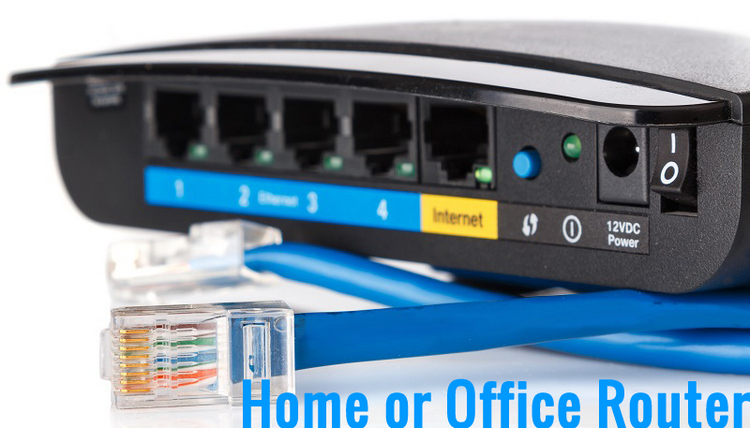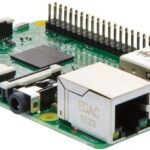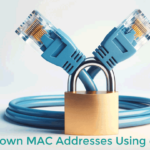A home or office router is a networking device that is used to connect multiple devices to the internet and each other. It is typically used in homes and small businesses to provide internet access to multiple devices such as computers, smartphones, tablets, and smart home devices.
Routers are necessary because they allow multiple devices to connect to the internet at the same time, and they also allow those devices to communicate with each other.
Without a router, each device would need to be connected to the internet individually, which would be inconvenient and inefficient. Routers also provide a layer of security for your home network by helping to prevent unauthorized access to your devices and data.
In summary, a router is an essential device for connecting multiple devices to the internet and each other, and for providing security for your home network.
Should I rent or buy my router?
There are pros and cons to both renting and buying a router. Here are some things to consider when deciding whether to rent or buy a router:
Cost: Buying a router upfront may be more expensive than renting one, but you’ll own the router and won’t have to pay a monthly fee. Renting a router typically involves paying a monthly fee, which can add up over time.
Features and capabilities: If you rent a router, you may not have as much control over the features and capabilities of the router. When you buy a router, you can choose one that meets your specific needs and has the features you want.
Upgrades: If you rent a router, the provider may upgrade the router for you, which can be convenient. If you buy a router, you’ll have to pay for any upgrades yourself.
Flexibility: If you’re not sure how long you’ll be in a particular location or if you think you may need to upgrade your router soon, renting a router may be a more flexible option.
Ultimately, the decision to rent or buy a router will depend on your specific needs and budget. It may be more cost-effective to buy a router if you plan to be in the same location for a long time and don’t need frequent upgrades.
What is the best router to buy? What features should it have?
The best router for you will depend on your specific needs and budget. Some things to consider when choosing a router include:
Speed: Make sure the router is fast enough to handle your internet connection and the devices that will be connected to it. If you have a fast internet connection, you’ll want a router that can keep up with it.
Range: Consider the size of your home and the locations of your devices. If you have a larger home or devices that are far from the router, you’ll want a router with a good range.
Security: Look for a router that supports secure protocols such as WPA2 and has a built-in firewall.
Bandwidth: If you have a lot of devices that will be connected to the router at the same time, you’ll want a router with good bandwidth management to ensure that all of your devices have a stable connection.
Connectivity: Consider the types of devices you’ll be connecting to the router and the connectivity options they support. If you have devices that use older technologies such as Ethernet, you’ll want a router with Ethernet ports.
Some popular router brands to consider include Google, Netgear, TP-Link, and Asus. It’s also a good idea to read reviews and do some research to find a router that meets your needs and fits your budget.
Does brand matter?
Brand can be one factor to consider when choosing a router, but it’s not the only factor. While some brands may have a reputation for producing high-quality routers, it’s important to also consider the specific features and capabilities of the router to ensure it meets your needs.
For example, if you have a fast internet connection and a lot of devices that will be connected to the router at the same time, you’ll want a router with a high speed and good bandwidth management, regardless of the brand.
On the other hand, if you have a smaller home and only a few devices, you may not need a router with as many advanced features and a less expensive option from a lesser-known brand may suffice.
It’s a good idea to do some research and read reviews to find a router that meets your specific needs and fits your budget, regardless of the brand.
Summary
To summarize, a router is a networking device that is used to connect multiple devices to the internet and to each other. It is an essential device for providing internet access and connectivity to multiple devices, and it also provides a layer of security for your home network.
When choosing a router, consider factors such as speed, range, security, bandwidth, and connectivity to ensure that you get a router that meets your specific needs. You can either buy a router upfront or rent one, and the decision to rent or buy will depend on your specific needs and budget.
Monitor your Internet and provider
Now that you’ve decided on the best router for your needs, what can you do about Internet problems in your neighborhood or with your provider?
If you are technically inclined, you can manually run a number of tests. If you aren’t interested in that, you can use sofware that can take care of it all for you automatically.
OutagesIO provides a free service that anyone can use to monitor their Internet and provider for facts, accountability and even proof of problems for employers.
A simple three step install and you’ll be able to see how your Internet is performing.









